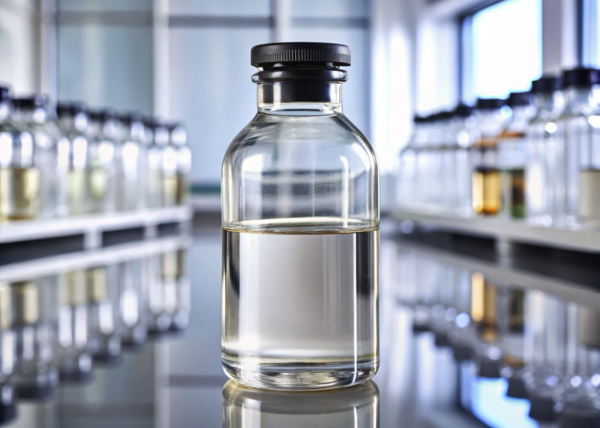The artery unclogging duo: How pomegranate and garlic could save millions of lives
In a world where cardiovascular disease claims more lives than any other ailment, a groundbreaking solution may be found not in the latest pharmaceutical wonder drug, but in two humble foods that have been cherished for millennia: pomegranate and garlic. Mounting scientific evidence suggests that these natural wonders possess an extraordinary ability to combat atherosclerosis--the buildup of deadly plaque in the arteries--yet their potential remains largely untapped and underreported.
(Article republished from
GreenMedInfo.com)
Cardiovascular disease is a global epidemic of staggering proportions. According to the World Health Organization, it is the leading cause of death worldwide, responsible for an estimated 17.9 million lives lost each year.
1 At the heart of this crisis lies
atherosclerosis, a condition characterized by the accumulation of fatty deposits,
inflammation, and calcification within the arteries, leading to reduced blood flow and increased risk of
heart attack,
stroke, and death.
2 Despite the immense burden of this disease, modern medicine has yet to produce a pharmaceutical intervention capable of reversing advanced atherosclerosis, leaving millions of patients with few options beyond symptom management and risky surgical procedures.
Enter
pomegranate and
garlic, two foods with a long history of medicinal use and a growing body of scientific evidence supporting their role in cardiovascular health. In a landmark study published in the journal
Clinical Nutrition, researchers found that daily consumption of pomegranate juice for one year resulted in a remarkable reversal of carotid artery plaque buildup in patients with severe atherosclerosis.
3 The study followed 19 patients, 10 of whom consumed 50mL of pomegranate juice daily, while the remaining 9 served as a control group. Incredibly, the pomegranate group experienced a 35% reduction in the thickness of their carotid artery walls after one year, and this effect persisted in the five patients who continued the treatment for a total of three years.
3 In contrast, the control group saw a 9% increase in arterial wall thickness over the same period.
3
But how does pomegranate achieve such dramatic results? The answer lies in its unparalleled antioxidant content. Pomegranates are rich in
polyphenols, tannins, and
anthocyanins, which scavenge the free radicals that contribute to oxidative stress and inflammation--key drivers of atherosclerosis.
4 In fact, the study found that pomegranate juice consumption reduced
oxidative stress markers and increased antioxidant capacity in the participants' blood, with serum levels of antibodies against oxidized LDL decreasing by 19% and total antioxidant status increasing by 130% after one year.
3 Pomegranate also boosted the activity of paraoxonase, an enzyme that protects against LDL oxidation, by up to 83%.
3
Garlic, too, has demonstrated remarkable potential in the fight against atherosclerosis. A 2016 study published in the
Journal of Nutrition found that aged garlic extract reduced the progression of coronary artery calcification in patients with metabolic syndrome.
5 The study involved 55 patients, half of whom received 2,400 mg of aged garlic extract daily for an average of 354 days, while the other half received a placebo.
5 Strikingly, the garlic group experienced a significant decrease in low-attenuation plaque volume (a type of soft plaque associated with increased heart attack risk), while the placebo group saw an increase.
5 The researchers attributed garlic's beneficial effects to its ability to reduce
cholesterol, dilate blood vessels, fight inflammation, and combat oxidative stress.
5
But the benefits of garlic for cardiovascular health don't stop there. Additional studies have shown that garlic consumption can inhibit vascular calcification,
6 improve vascular elasticity and endothelial function,
7,8 and even reduce the progression of preclinical atherosclerosis when combined with B vitamins and other nutrients.
9,10 With such a broad spectrum of cardioprotective effects, garlic has been aptly described as a "polypill" for heart health.
11
Given the robust scientific evidence supporting the use of pomegranate and garlic in atherosclerosis prevention and reversal, it is nothing short of astonishing that these natural remedies remain largely overlooked and underutilized in the face of a global cardiovascular disease epidemic. While pharmaceutical companies pour billions into developing drugs that offer marginal benefits at best and come with a host of potential side effects, nature has already provided us with powerful tools to combat one of the most deadly diseases of our time.
It is time for the medical community and the public at large to recognize the immense potential of foods like pomegranate and garlic in the fight against cardiovascular disease. By incorporating these natural wonders into our diets and treatment strategies, we may have the power to save millions of lives and fundamentally alter the course of this devastating epidemic. The science is clear--now it is up to us to act on it.
Read more at:
GreenMedInfo.com
 Parler
Parler Gab
Gab










